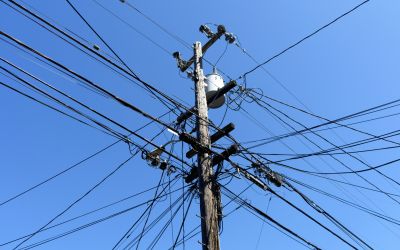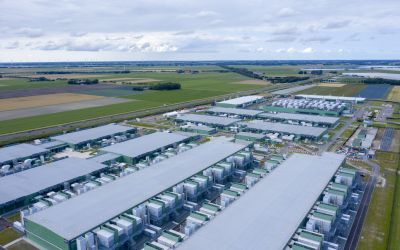UNEP Children and Youth Conference Spotlights Job Opportunities in a Green Economy
Urgently bridging the skills gap among young people through improved education and training will be one of the keys towards delivering a global Green Economy. The claim was made today at the opening of the Tunza International Conference for Children and Youth taking place in Bandung, Indonesia, with over 1,400 young participants.
But Lack of Green Job Initiatives and Skill Shortages May Constrain Employment Growth and the Transition to Sustainable Development
Tunza--Children and Youth on the Road to Rio+20
Urgently bridging the skills gap among young people through improved education and training will be one of the keys towards delivering a global Green Economy.
The claim was made today at the opening of the Tunza International Conference for Children and Youth taking place in Bandung, Indonesia, with over 1,400 young participants.
Nearly 40 percent of the world’s unemployed -- over 80 million people—are between the ages of 15 and 24. According to the latest estimates, more than 36 million of them live in Asia and the Pacific.
Accessing “Green Jobs”—that are good for the environment and good for business -- will be critical for achieving sustainable development goals ranging from eradicating poverty to accelerated growth in sectors such as sustainable agriculture to renewable energies, which are also part of the Millennium Development Goals (MDGs).
Indonesia could become a model on how to achieve broad sustainability goals that include ‘green jobs’ for young people as a result of a new initiative with the International Labour Organization (ILO).
The initiative, which is getting underway, has been inspired by Susilo Bambang Yudhoyono, the President of Indonesia, during his address to the 100th session of the International Labour Conference in Geneva in June 2011.
"In Indonesia, we intend to advance a national green skills development strategy. We plan to pursue a decentralized youth apprenticeship programme for green jobs and take measures to foster entrepreneurship and self employment in the green sector,” he said.
The initiative builds on new research by UNEP and the ILO that indicates that while jobs in high-emission ‘brown’ industries, or in currently unsustainable sectors such as many of the world’s fisheries, will be redefined and some of them lost in the transition to a Green Economy, millions of new ‘green’ jobs will be catalyzed to support sustainable agriculture, construction, energy, forestry, tourism, transportation and waste management and recycling sectors.
However, the educational and vocational training that will prepare youth for these jobs and bring the skills needed to grow sustainable economic sectors is currently inadequate, new research by the ILO shows.
“From Asia to the Middle East and Europe, and from North America to Latin America and the small island developing states, the issue of youth employment is emerging as a challenge to the global economy and to social stability in countries and communities. Some governments are now factoring youth into green employment and green development strategies and launching the vital green entrepreneurial initiative as well as education and skills initiatives to support this,” said Achim Steiner, UN Under-Secretary General and UNEP Executive Director.
“The Rio+20 meeting in June next year represents a central opportunity to adopt far more wide-ranging policies and smart instruments to scale-up and accelerate such transitions. The Bandung Declaration at this week’s conference offers a moment and a vehicle for the children and youth to send a clear and unequivocal message to world leaders meeting 20 years after the Rio Earth Summit that this is what they want and the future they deserve,” he added.
There are already a growing number of new or redefined jobs in the transition to the Green Economy. While some need engineering and technical skills in new green technologies like ‘hybrid’ car engines, solar panels, or LED lighting, others simply require retraining in more sustainable industries such as organic farming, biomass or green construction.
According to the Green Jobs: Towards Decent Work in a Sustainable, Low-Carbon World report produced in 2008 by UNEP, the ILO, the International Trade Union Confederation (ITUC) and the International Organization of Employers (IOE) by 2030 up to 12 million people could be employed globally in biofuels-related agriculture and industry, 2.1 million in wind energy and up to 6.3 million in solar.
The report is the first comprehensive and authoritative overview which addresses the complexity and policy relevance of global environmental challenges and employment.
Sponsored Content
Growing environmental awareness is also helping channel interest in a greater variety of ‘green jobs’. For example, more people are employed worldwide in renewable energy than in the fossil fuel industry.
The automotive sector has also begun to attract workers in eco-friendly vehicles, including hybrid, electric and hydrogen-powered ones and the construction industry is beginning to focus on green sustainable buildings which consume less energy.
There are a number of reasons for the shortage in skills. The explosive growth in new green sectors, such as energy-efficient buildings, electric cars, waste management, renewable energy, have outpaced an increase in teachers and trainers, particularly in developing countries.
H.E. Professor Gusti Muhammad Hatta, State Minister for the Environment in Indonesia said, “Green jobs in emerging economies will benefit a broad cross-section of the population, especially young people. That is why it is essential to develop new skills and capacities for the future. We look forward to the Bandung Declaration to bring these ideas to the forefront of the global agenda for Rio+20.”
Some countries and educational institutions have already begun to focus on training programmes for building strategic skills for the transition to a Green Economy with more ‘green jobs’.
- In Bangladesh, the Grameen Shakti has trained over 1,000 women and youth to qualify as certified solar technicians.
- In Brazil the National Biodiesel Programme trains rural technicians to assist agricultural producers to grow bioenergy crops.
- In Indonesia, where 40 percent of the labour force is working in the agricultural sector, the country’s Ministry of Agriculture in 2002 launched the Climate Field Schools to train farmers in planting strategies that address climate change.
- The University of Miskolc in Indonesia now offers courses in Mechanical Engineering with a major in energy conversion.
- India’s National Rural Employment Guarantee Act 2005 (NREGA) is a guaranteed wage employment programme that enhances livelihoods in rural areas. Water conservation accounts for about half of the total projects supported under NREGA, with 850,000 water conservation works funded and completed from 2006 to 2008. In the District of Jalaun (Uttar Pradesh), NREGA provides training and jobs for villagers to develop solutions to their heavily silted water harvesting infrastructure, alleviating their water shortages.
- In South Africa there is the Expanded Public Works Programme of ‘Working for Water’ which provides training for disadvantaged communities to control and remove invasive alien plants which pose a threat to water security in the country.
-
Faced with a severe economic downturn in the 1980s and 1990s, the regional government of Navarre, Spain, set up a public training centre for renewable energies in an effort to expand the renewable energy sector. Today, some two thirds of the region’s electricity production is derived from renewable sources and employment in renewable energies has jumped 183% from 2002-2006 giving Navarre the second lowest unemployment rate in Spain.
- In Thailand, the Ministry of Agriculture is providing training for agriculturalists on the use of bio-fertilizers to replace chemical fertilizers that emit greenhouse gases. Thailand’s Ministry of Energy is also training technicians in energy management and technology and the Ministry of Tourism and Sports is organizing training courses in eco-tourism.
- With a large agricultural population that does not depend on fertilizers, Uganda has harnessed a real opportunity to pursue organic farming as an important revenue for farmers. The National Organic Agricultural Movement of Uganda (NOGAMU) now promotes organic agriculture throughout the country and the export of certified organic products around the world. And the policy has paid off. Certified organic exports jumped from US$3.7 million in 2003 to US$22 million four years later.
Participants at the TUNZA conference, which takes place from 27 September to 1 October 2011, are putting their final requests and appeals to world leaders via a Bandung Declaration that will be delivered at the upcoming Conference on Sustainable Development (Rio+20) in Rio de Janeiro, Brazil, in June 2012.





_400_250_80_s_c1.jpg)
